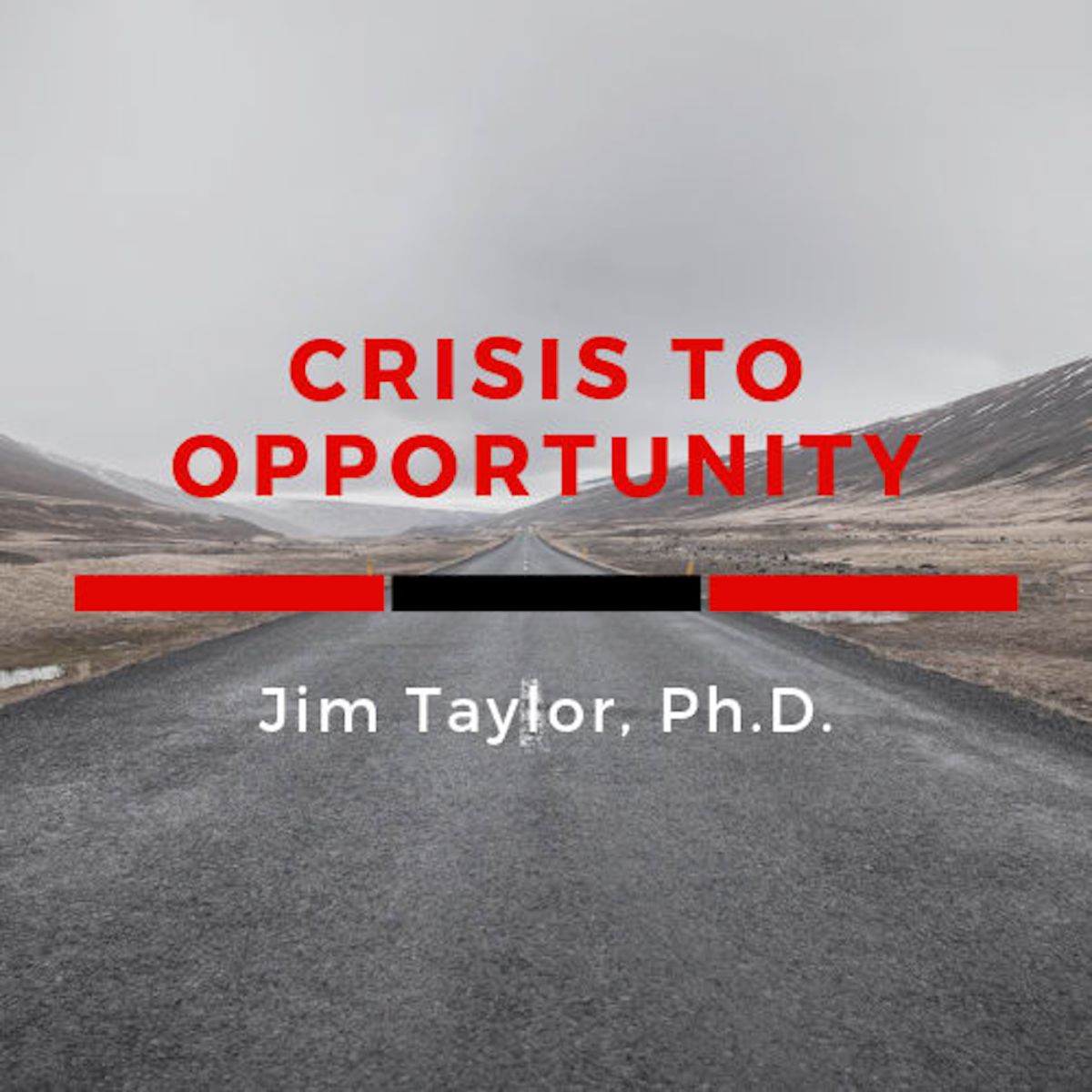Episode #25: Pessimism to Optimism-Part I of my Crisis to Opportunity podcast is the first of four in which I explore the importance of mindset in how you respond to a crisis.
Rather than viewing mindset as similar to attitude, I see mindset as one step closer to consciousness and everyday life. Attitudes guide your big-picture life in relation to how you perceive your world, the decisions you make, and the actions you take. By contrast, your mindset directs your day-to-day thinking, efforts, and actions. One helpful way to distinguish mindset from attitudes is to think about them as parts of a large organization (you). Your attitudes are your bosses that are several levels up the organizational chart and residing on the 50th floor. Your mindset is the supervisor to whom you report directly and is situated on the 1st floor.
As I’m sure you can imagine, where you lie on the pessimism-optimism continuum will have a significant influence on whether you adopt a crisis mentality or an opportunity psychology which informs its impact on you and your response to it. Generally, pessimists tend to hold a crisis mentality because they view crises as threat to be avoided. In contrast, optimists more readily adopt an opportunity psychology because they see surmountable challenges that they want to pursue, rather than seeing major roadblocks preventing them from getting where they want to go. So, what are you, a pessimist or an optimist?
To learn more, please listen to Episode #25: Pessimism to Optimism-Part I of my Crisis to Opportunity podcast.
Podcast: Play in new window | Download







